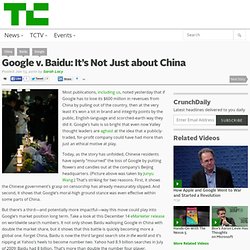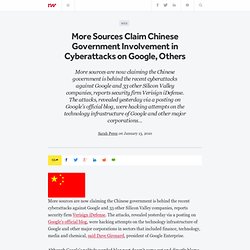

OneReader pour iPhone, iPod touch et iPad dans l’App Store sur iTunes. OneReader : une appli pour rationaliser votre veille. Le même article tweeté à plusieurs exemplaires par plusieurs personnes de votre TL ça vous parle ?

Envie d’avoir une approche plus productive de votre veille ? J’ai eu l’honneur de béta tester OneReader et comme j’aime bien je vous en parle. Pour peu que vous suiviez une communauté de Twittos importante, pour peu que soyez abonné à de nombreux flux d’infos, il se peut que vous voyiez régulièrement les mêmes articles apparaître dans votre TL, provenant de différentes sources.
OneReader, développée pour Ipad et Iphone, prend une approche nouvelle en proposant de rentrer non pas par la personne/le média qui partage l’info, mais par l’info elle même. Ainsi, une fois que vous avez connecté votre (vos) compte(s) Twitter, Facebook, Feedly, Feedbin ou app.net au Reader, il va agréger tous les contenus et vous les présenter par article. En ce qui me concerne, le média connecté est Twitter. Puis, je démarre ma lecture en commençant à descendre le menu de droite. Voilà. Like this: Google Gained Ground on Baidu in 2009. Google v. Baidu: It’s Not Just about China. Most publications, including us, noted yesterday that if Google has to lose its $600 million in revenues from China by pulling out of the country, then at the very least it’s won a lot in brand and integrity points by the public, English-language and scorched-earth way they did it.

Google’s halo is so bright that even now Valley thought leaders are aghast at the idea that a publicly-traded, for-profit company could have had more than just an ethical motive at play. Today, as the story has unfolded, Chinese residents have openly “mourned” the loss of Google by putting flowers and candles out at the company’s Beijing headquarters.
(Picture above was taken by Junyu Wang.) That’s striking for two reasons. First, it shows the Chinese government’s grasp on censorship has already measurably slipped. But there’s a third—and potentially more impactful—way this move could play into Google’s market position long term. More Sources Claim Chinese Government Involvement in Cyberattack. More sources are now claiming the Chinese government is behind the recent cyberattacks against Google and 33 other Silicon Valley companies, reports security firm Verisign iDefense.

The attacks, revealed yesterday via a posting on Google's official blog, were hacking attempts on the technology infrastructure of Google and other major corporations in sectors that included finance, technology, media and chemical, said Dave Girouard, president of Google Enterprise. Although Google's politely-worded blog post doesn't come out and directly blame the Chinese government for these attacks, many have suspected that is the case, including, apparently, Secretary of State Hillary Clinton. Now even more sources are coming out to confirm the Chinese government's involvement. According to Verisign, their sources within the defense-contracting and intelligence-consulting communities also believe "agents of the Chinese state or proxies thereof" are to blame for these recent attacks.
About the Attacks. Google attack part of widespread spying effort. Google's decision Tuesday to risk walking away from the world's largest Internet market may have come as a shock, but security experts see it as the most public admission of a top IT problem for U.S. companies: ongoing corporate espionage originating from China.

It's a problem that the U.S. lawmakers have complained about loudly. In the corporate world, online attacks that appear to come from China have been an ongoing problem for years, but big companies haven't said much about this, eager to remain in the good graces of the world's powerhouse economy. Google, by implying that Beijing had sponsored the attack, has placed itself in the center of an international controversy, exposing what appears to be a state-sponsored corporate espionage campaign that compromised more than 30 technology, financial and media companies, most of them global Fortune 500 enterprises. The U.S. government is taking the attack seriously. Stanford offering updated iPhone dev course on iTunes U. Like it did last year, Stanford University has posted the complete lecture and presentation slides for the Winter 2010 term's iPhone Application Development course.

If you aren't in school or your local center for higher education hasn't jumped on the bandwagon and offered its own course, the Stanford course may be a good substitute. The course, overseen by Apple's Paul Marcos and taught this term by Alan Cannistraro, also from Apple, has proven quite popular: it was downloaded from iTunes more than 4.4 million times last year. The latest series of lectures are updated to include APIs from the latest iPhone OS 3.1 SDK. Furthermore, the videos are also closed-captioned for better accessibility.
"In addition to helping those with hearing disabilities, the captions will be helpful to English language learners or students trying to understand the more technical aspects of the classes," Julie Zelenski, a Stanford computer science lecturer, told The Loop.